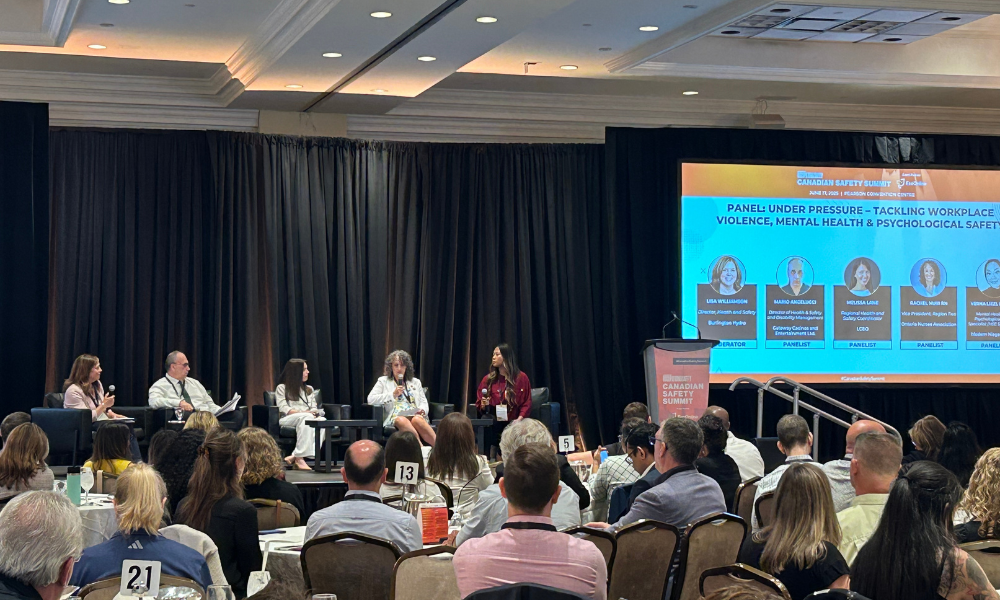It’s getting harder to justify limiting compensation to sudden and unexpected traumatic events
As the stigma falls away from mental health in the workplace, employers and governments are facing a massive bill — and, surprise, it appears nobody is remotely interested in footing it.
Earlier this month, the Toronto Star reported the details of a complaint filed with Ontario’s ombudsman over the Workplace Safety and Insurance Board’s (WSIB) rejection of benefits for workers with chronic stress claims. On the surface, the rules seem pretty straightforward.
The WSIB’s operational policy manual on “Traumatic Mental Stress” states workers are entitled to benefits if the stress is “an acute reaction to a sudden and unexpected traumatic event arising out of the course of employment.”
So what does that mean? According to the WSIB, a sudden or traumatic event could include witnessing a fatality or a horrific accident. Or being the victim of an armed robbery, hostage taking or physical violence. Death threats also make the cut, as does harassment that includes threats of violence or being placed in a life-threatening situation.
But stress that comes “as a result of the employer’s employment decisions or actions” doesn’t count. For example, being fired. It’s stressful, but it certainly doesn’t give rise to workers’ comp benefits. Nor does a demotion, a transfer or discipline.
With growing recognition of the toll mental health issues can take, though, it’s getting harder to justify limiting compensation to sudden and unexpected traumatic events. Workers who are subjected to prolonged verbal harassment and bullying from supervisors can also develop serious psychological issues — but the WSIB doesn’t want to pay for it. Nor do employers, either through workers’ compensation premiums or through others costs such as short- and long-term disability.
The Star story quotes Wendy Knelsen, who was diagnosed with chronic post-traumatic stress that developed over years due to “ongoing bullying and harassment by her supervisors” in her civilian job at the Fire Department in London, Ont. Her claim was rejected by the WSIB and, despite a decade of appeals, she doesn’t have an answer.
“Basically, dealing with the system has been horrific,” she said. “It’s intimidating. It’s difficult to get answers, and they are untrained for dealing with mental stress.”
On rare occasions, benefits have been awarded in circumstances that don’t count as sudden or unexpected. Earlier this year, Canadian Employment Law Today outlined the decision involving an educational assistant (EA) in Ontario who worked with special needs children.
“The EA was targeted by an eight-year-old student who kept assaulting her,” wrote Jeffrey R. Smith, editor. “The student had been prone to violent outbursts for some time, but things escalated over a three-month period to the point where the EA was assaulted every day. Finally, she had a breakdown and went off work.”
Her claim was initially denied — it didn’t fit the mold — but she was awarded benefits on appeal. The rulings of the appeal tribunal are case specific, though, and don’t change policy. That means individual workers are left to fight expensive and time consuming David and Goliath battles. And that’s sort of the genesis of the complaint filed with the ombudsman — lodged by three Toronto-based legal clinics, a private practice lawyer specializing in workers’ compensation and Ron Ellis, the retired chair of the WSIB’s independent tribunal, according to the Star.
It calls the treatment of workers with chronic mental stress injuries into question, and says the practice of denying benefits is discriminatory and unconstitutional.
It’s an interesting conundrum we’ve arrived at — most people recognize the seriousness of mental health issues. Most employers are receptive to the idea that psychological safety is as important as physical safety. Yet when the dreaded doctor’s note arrives stating a worker is on stress leave, backs go up. Questions are raised. Benefits are denied, and victims are left feeling like mental health is a lip service bandwagon to jump on but not to actually (gasp) use.
Don’t expect the financial side of the equation to change anytime soon. WSIB’s 2015 annual report highlights that it has been aggressively attacking its very public unfunded liability. By the end of this year, it expects to be at 80 per cent of its target of eliminating the liability — that’s six years ahead of schedule.
Opening the door to benefits for workers who suffer from chronic mental health issues caused by non-traumatic workplace incidents will undoubtedly kill the ledger the WSIB is so proud of — and don’t expect altruistic employers to ride to the rescue. Most firms already think premiums are far too high.
Pick whatever idiom you like — Pandora’s box is open, the genie is out of the bottle — but courts are going to increasingly award compensation. Workers comp schemes across the country are eventually going to have to start paying benefits on a much larger scale.
If you ever needed a business case on why you can’t tolerate that bully of a manager just because he gets results, this is it. Because the costs are going to be outrageous.





